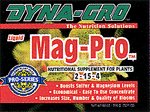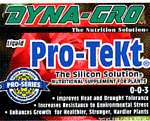

The Basics of Plant Nutrition |
|||
|
What are Nutrients? In nature, plants get nutrients from organic debris that collects at the roots. This can be anything from decaying tree bark to bird droppings. Complex interactions involving live bacteria, enzymes, and microbes break down this organic matter so the plant can absorb it.This process is almost impossible with potted plants because potting mixes are sterilized, killing the bacteria needed to transform the organic matter. So potted plants rely on the grower to provide the nutritional elements they need to grow. The Real Food Plants Need to Grow Don't confuse "Plant Nutrients" with "Plant Food". The real "food" plants use to grow is the light, water, and air. See box at right. Nutrients, on the other hand, are the minerals absorbed at the roots. If you're not giving your plants the proper food they need to grow (light, water, air), your choice of nutrients won't matter. |
|
||
| Orchids
vs Houseplants Orchids are much more finicky about nutrients than houseplants. In nature, houseplants live on the forest floor where nutrients are abundant. Their roots grow in a combination of soil, decaying leaves, animal droppings, etc. These plants have the luxury of picking and choosing from an "all you can eat" smorgasboard of available minerals. Orchids,
on the other hand, grow where moisture and
nutrients can be scarce. To survive in this harsh
environment, they have adapted to living comfortably on a slim diet
of nutrients. More harm is done from too much fertilizer than not enough. In fact, I've never seen an orchid die from lack of fertilizer. |
||
| Nutrition for Orchids Isn't Complicated | |||||
|
A complete and balanced nutrition program for orchids is easy with hydroponics. Because hydroponics doesn't rely on the growing media for any nutritional value, everything your plant needs is packed into the fertilizer - in a form the plant can use immediately. Simply add the nutrients to the water and they're absorbed by the plant's root system. No complicated biology necessary. Orchids have a definite rythum or pattern to their growth habits. The key to a successful nutrition program for orchids is making adjustments to match those rythums. 1.
Start by using a basic "Grow
Formula" that has everything
your plants need for growing
healthy roots and leaves. Apply
every
watering. (See
Dyna-Gro Grow 7-9-5.) It's that simple.
|
|||||
| Know
Your Fertilizer Why Hydroponics? |
|||||
|
|||||
Other nutritional
supplements you might want to try.
|
|||||




